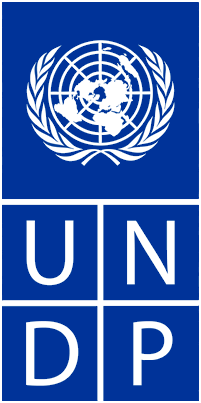Community / Land projects / Provision of emergency shelter, non-food items and Cash Voucher Assistance for vulnerable displaced population
Provision of emergency shelter, non-food items and Cash Voucher Assistance for vulnerable displaced population

€388858.4381
09/22 - 06/23
Concluído
This project is part of
Implementing Organisations
Donors
Data Providers
Objectives
The project addresses the most urgent ES/NFI needs of 27,155 individuals (4,526 HHs) affected by recent events of sub national violence and flooding, through provision in-kind assistance in Tambura County and a combination of cash and in-kind response in Ezo County, WES. The response modality is informed by YEDA’s previous experience in WES, and the need to implement rapid response in the targeted areas using the SNFI supplies. 24,155 individuals (4,026 HHs) will be targeted with in-kind provision of ES/NFI. Of those, the most vulnerable 1800 individuals (300 HHs) at high risk of GBV and/or contracting infectious diseases, will be targeted with shelter construction, in coordination with HLP and protection partners. YEDA will source natural materials (wooden poles, bamboo bundles) from the local community for construction of 300 shelters, empowering people financially, supporting market recovery, and reducing the risk of conflict between beneficiaries and host community. 10 volunteers (50% women and youths) in each County will be trained in shelter construction and will work under the supervision of the local shelter expert. Additionally, 2400 individuals (400 HHs) will be targeted with cash and voucher, in areas with functional and accessible markets in Ezo county. Market, needs and response analysis in collaboration with protection partners will inform the feasibility of such interventions and will assess and monitor protection risks, also ensuring the active participation of beneficiaries and host community, in respect of the Do-No-Harm principle. Beneficiary targeting will be guided by the SNFI Cluster criteria PLWs, children lt5, the elderly, PWN/PWDs (15% according to the allocation strategy), high number of dependents, multiple displacement, lack of ties with the local community/purchasing power, GBV and COVID-19 risks associated with SNFI needs. The evaluation of multiple vulnerabilities will allow the YEDA staff to select the households most in need. All interventions will be carried out following Covid-19 preventive measures social distancing, use of PPE and preventive messaging through IEC materials. Finally, YEDA will maintain static presence in Mundri, Yambio and Juba, to continue with humanitarian coordination and ensure the ability to quickly deploy a mobile team in each area of intervention. In accordance with the SNFI cluster coordinators and cluster core pipeline, YEDA will ensure safe storage and handout of pipeline supplies from its warehouse in Yambio for the whole duration of the project, as detailed in the budget. Our 12 years of experience delivering humanitarian assistance and coordination of humanitarian response provided us the key tools and know-how to successfully implement this project. As SFP for WES, YEDA will continue coordinating with S/NFI Cluster partners and other relevant stakeholders on regular basis to prioritize and ensure that a timely, effective, targeted and needs based response is delivered. YEDA will also build the capacity of local partners, staff and volunteers, providing them support while conducting response to build the technical capacity. MampE will be conducted jointly with communities/local leaders as part of a CFRM on weekly/monthly basis. Coordination with the SNFI cluster through the SFPs on by-monthly basis, and with other humanitarian partners through the humanitarian hub in Yambio on monthly basis, to join inter-agency response, minimize duplication, and promote integrated responses as well as gender and protection mainstreaming. Risk of conflict over land will be mitigated by identifying land ownership/tenure arrangements and local mechanisms for settling land disputes, involving all relevant stakeholders to handle them, and training staff, volunteers and communities in HLP access rights.



